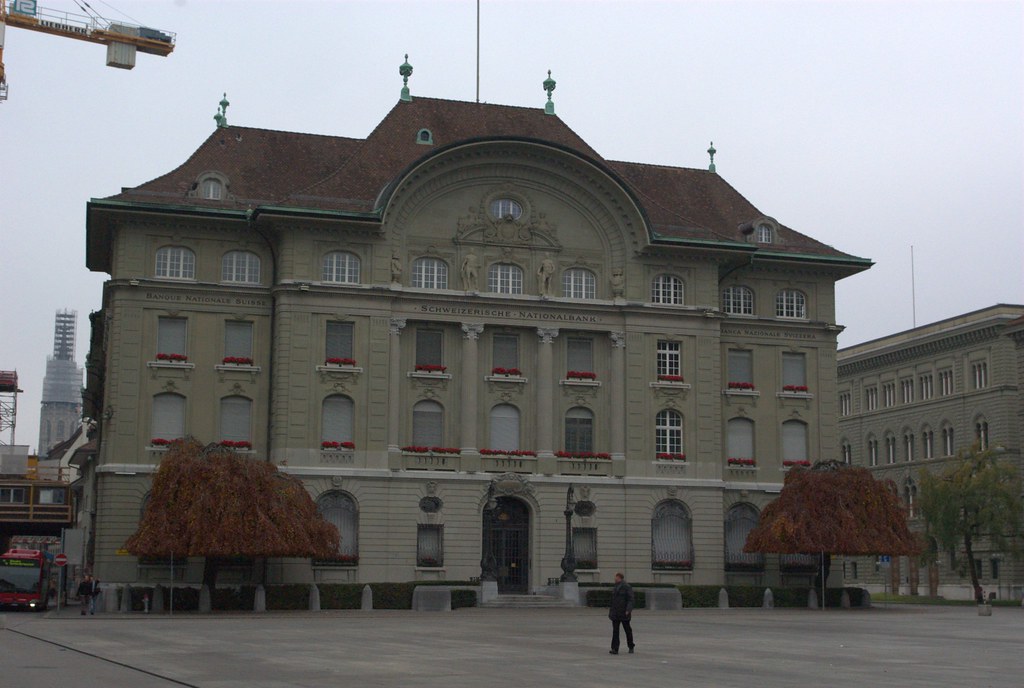SNB cuts economic outlook, keeps ultra-loose monetary policy
The U.S. Federal Reserve in its latest policy meeting on Wednesday said it will likely begin reducing its monthly bond purchases as soon as November and signalled interest rate increases may follow more quickly than expected. Still, these moves were seen by analysts as not enough to allow the SNB to start changing the policy it has retained since 2015.

- Country:
- Switzerland
The Swiss National Bank gave a more cautious view about the Swiss economic recovery on Thursday and bucked the trend of its central bank counterparts in Frankfurt and Washington by sticking firmly with its ultra-loose monetary policy. Economic momentum during the pandemic recovery had "slowed somewhat", the SNB noted as it cut its 2021 GDP growth forecast for Switzerland by half a percentage point to 3%.
"In June, the SNB had still been assuming higher growth," the bank said in a statement, citing weaker developments than expected developments in trade and hospitality. "The SNB is maintaining its expansionary monetary policy to ensure price stability and provide ongoing support to the Swiss economy in its recovery from the impact of the coronavirus pandemic," it said.
With Swiss inflation expected to be sluggish - rising only to 0.8% in the second quarter of 2024 - the SNB felt little pressure to start hiking its policy interest rate from minus 0.75%. It ignored tentative early moves by the European Central Bank and the U.S. Federal Reserve to start normalizing their policy.
The SNB said it remained willing to intervene in foreign currency markets to restrain the appreciation of the Swiss franc, which it continued to describe as "highly valued". Negative rates and interventions have been the cornerstone of Chairman Thomas Jordan's strategy to tame the franc over the past six years. Jordan returned to duty for the latest decision after a heart operation last month.
Jordan's retention of an expansive approach runs counter to the early moves by the ECB this month to start trimming its emergency bond purchases to a moderately lower pace. The U.S. Federal Reserve in its latest policy meeting on Wednesday said it will likely begin reducing its monthly bond purchases as soon as November and signaled interest rate increases may follow more quickly than expected.
Still, these moves were seen by analysts as not enough to allow the SNB to start changing the policy it has retained since 2015. "As long as the Fed does not start to increase its rate, the pressure on the SNB to change something is minimal," said Thomas Stucki, an economist at St Galler Kantonalbank. "When the Fed starts to increase the rate in 2023, the SNB has to decide if it wants to wait for the ECB or if it wants to act independently."
Capital Economics said it doesn't expect a policy shift by the Swiss until well into the future. "The bigger picture is that the SNB is unlikely to raise interest rates until after the ECB, and so probably well beyond our forecast horizon and in all likelihood not until the second half of this decade," said its economist David Oxley.
"If you’re looking for policy action, you’ve come to the wrong place."
(This story has not been edited by Devdiscourse staff and is auto-generated from a syndicated feed.)
ALSO READ
International court finds Switzerland guilty of human rights violation in landmark climate case brought by 2,000 women
Switzerland protecting economy and taxpayers with banking proposals, minister says
Switzerland will host a Ukraine peace conference in June and hopes Russia can join one day
Switzerland to Host Ukraine Peace Conference in June, Aims for Russian Participation in the Future
Neutral Switzerland joins European Sky Shield defence project










